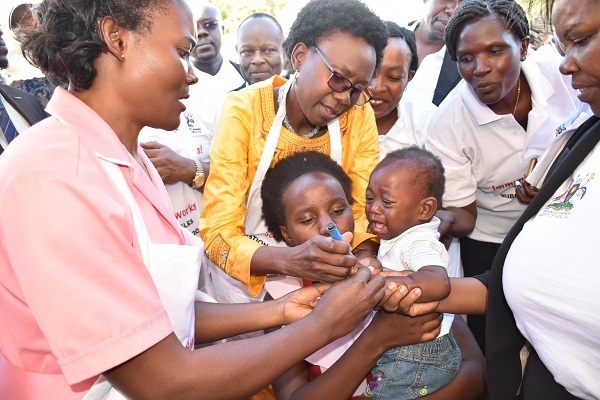Pertussis, or whooping cough, is a preventable disease, yet it still kills more than 150,000 children under five every year – most of them in low- and middle-income countries. Also known as the 100-day cough, the bacterial infection, which affects the lungs and airways, can last for two to three months or more, making babies and young children extremely unwell. The spread of this disease could be dramatically reduced with comprehensive coverage of a hexavalent vaccine, which protects children against six different diseases, according to a paper by leading disease specialists.
Combination vaccines can ease the logistics of vaccine management, such as keeping them cool and distributing to all target communities, facilitating higher coverage and preventing future outbreaks. However, many low- and middle-income countries have struggled to achieve or maintain the high vaccine coverage rates needed to prevent the spread of the disease, according to the paper, which looks at the role of hexavalent vaccines in combating pertussis and polio. “Most do not offer comprehensive booster vaccination yet, and often have limited surveillance capacity,” the authors write.
The hexavalent vaccine is a single injection that contains multiple antigens – substances that causes the body’s immune system to produce antibodies against it. It protects children against six diseases: diphtheria, tetanus, pertussis, hepatitis B, Hib, and polio. These types of vaccine have become essential for inf.


















